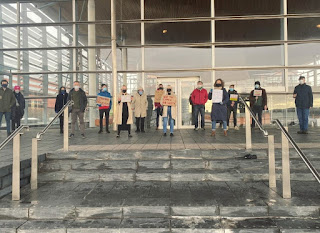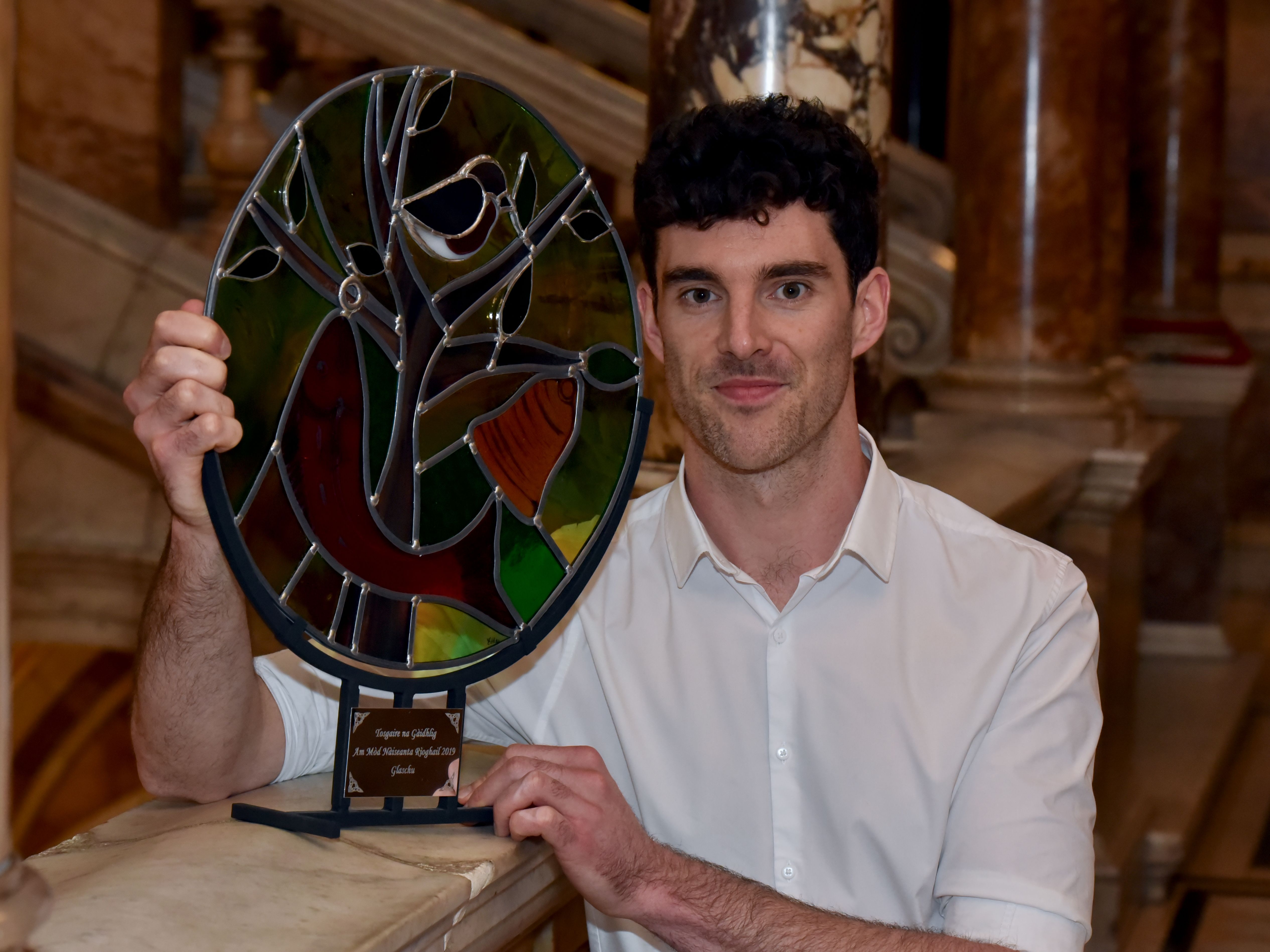The rural housing crisis is threatening our future, claim activists from Scotland, Ireland, Wales, Isle of Man and Cornwall who have united in a cross-border plea over the survival of Celtic languages.
In an appeal aimed at authorities in each of those countries and territories, culture groups say housing market pressures and public policy is putting their languages at stake. These include Scots Gaelic, Irish, Welsh, Manx and Cornish.
They’ve drawn up a Celtic Charter that asserts a “right to a home” for speakers of these languages in their geographical heartlands. However, they say high costs and the proliferation of holiday lets in rural areas means the tongues themselves may soon be driven from those areas.
The charter – or Cairt taigheadais Cheilteach in Gaelic and Siarter Tai Celtaidd in Welsh – is a collaboration between groups including Scotland’s Misneachd, its Irish equivalent Misneach and Cymdeithas of Wales. It includes contributions in Cornish from Mebyon Kernow.
It includes 11 different demands, including the introduction of a “punitive tax” on homes used for Airbnb lets, a statutory cap on the proportion of second or holiday homes within communities, rent management to match local earnings and “specific supports for minority language speakers to remain in their communities”.
“This issue has never been more important to the survival of Gaelic communities,” Skye architect Martainn Mac A’Bhaillidh of Misneachd told the Sunday National.“I know loads of families working at Sabhal Mòr Ostaig and in the Western Isles who are raising Gaelic-speaking kids with little to no hope that they will be able to live in the community they grew up in. It’s a completely unsustainable situation.”
That research was published by the University of the Highlands and Islands in July and found Scots Gaelic was “at the point of collapse”, with vernacular Gaelic likely to die out within only a decade as a result of the factors including the “social and economic modernisation” of the islands and the arrival of “new social players” who do not have the language amongst the biggest issues.
According to the Charter, these are issues that cross Celtic regions. It states: “We as organisations representing the minority languages of the Celtic nations, declare that urgent action must be taken. The damage done to our languages and their communities must be undone – including in some areas where our languages are no longer spoken.
“Homelessness is increasing, with more and more people unable to afford to live in their native areas. We regret that this is a result of the policies of the devolved and central governments. They include austerity and decades of economic inequality that disadvantage our rural communities.
“We therefore call on our governments to adopt a series of policies to ensure that the people who live and work here ... can afford to stay in their communities.”
Bethan Roberts of Cymdeithas says it’s already making a difference where she is. “Our ideas from the housing charter have resonated with people in Wales,” she said.
“Some progressive parties have already stated that they will be implementing some of the policies into their manifestos for next year’s Welsh Senedd election.
“We were very inspired working across different language communities. In an increasingly connected society, it’s easier than ever to create these links and learn from each other and work together. We face similar challenges and believe that our voices can be strengthened by coming together.”
Mac A’Bhaillidh hopes the same will happen here, but he says chances have already been missed, such as the Airbnb restrictions proposed by Scottish Greens MSP Andy Wightman.
These failed to garner the backing of SNP
and Tory members of the Scottish Parliament and, in an open letter
released earlier this week, signatories including crofters and
development officers claimed 40% of housing stock on both Tiree in the
Inner Hebrides and West Harris in the Western Isles are holiday homes.
And while the provision of Gaelic-medium education
has increased across the country, Mac A’Bhaillidh has little sympathy
for the idea that indigenous speakers take their language with them when
they move to areas where they are not spoken.
“Languages don’t survive without community around them,” he says. “They just don’t.
“There is very little evidence of languages surviving more than one or two generations in that context.
“There were 100,000 Irish-speaking people in Glasgow, where are they
now?” he asks. “Millions of Irish speakers went to New York, where are
they today?
“Whenever this housing issue is brought up there is a lot of hand-wringing – ‘what can we do?’
“In the Lake District, in the Channel Islands, in Cornwall and Norway
and New Zealand we see action being taken to limit and set rules about
who can buy a house where. It’s not that it can’t be done, it’s that
there isn’t the will.”
A Scottish Government spokesperson said: “We recognise the importance
of housing in areas of indigenous languages and the role that housing
partnerships have in supporting these communities.
“The Scottish Government is willing to work with all parties to support all communities.”
The Celtic Charter for Housing – a Right to a Home is given below. A
excellent multilingual video (English subtitles) accompanying it is
available on the Cymdeithas yr Iaith website and versions in Irish,
Gaidhlig, Welsh, Manx and Cornish languages – click here https://cymdeithas.cymru/siartertai
Celtic Housing Charter – the Right to a Home
The rural housing crisis is a huge problem that threatens the future of Celtic language-speaking communities.
We as organizations representing the minority languages of the
Celtic nations, declare that urgent action must be taken. The damage
done to our languages and their communities must be undone- including
in some areas where our languages are no longer spoken.
Homelessness is increasing, with more and more people unable to
afford to live in their native areas. We regret that this is a result of
the policies of the
devolved and central governments. They include austerity and decades of
economic
inequality that disadvantage our rural communities. We therefore call
on our governments to adopt a series of policies to ensure that the
people who live and work here including those belonging to marginalized
and minority communities can afford to stay in their communities. This
would be for the benefit of our languages and the prosperity of our
communities, with due regard to equality of opportunity regardless of
class, race or gender. Those measures should include:
cap the percentage of second or holiday homes within a community
changing the definition of affordable housing and managing rent prices so that they are affordable to people on local wages
further regulating and introducing a punitive tax on the use of houses
primarily or exclusively for AirBnB, including defining the use of houses or
flats as a whole as second homes or AirBnB
develop a strategic plan for housing and tourism in rural areas to
counter the fact that many houses have been taken out of the locally
available housing stock
devolve planning powers, including setting housing targets, to the most
appropriate local level, and require that language planning is mandatory;
close any weaknesses or loopholes in the law that allow taxes to be avoided
property legislation to control prices, specific supports for minority
language speakers to remain in their communities and to ensure the use of
empty and existing housing before new development is undertaken
return social housing stock to public ownership, return underused
stock to public ownership, and all ‘new builds’ to include a major
element of public ownership
a tax on landlords’ profits to invest in bringing empty and second homes
back into use for communities and those who live and work in them
incentives to renovate and / or build sustainable housing in terms of
material and method of construction
penalties for refusal to let property to members of disadvantaged
communities such as travellers or refugees.


















































